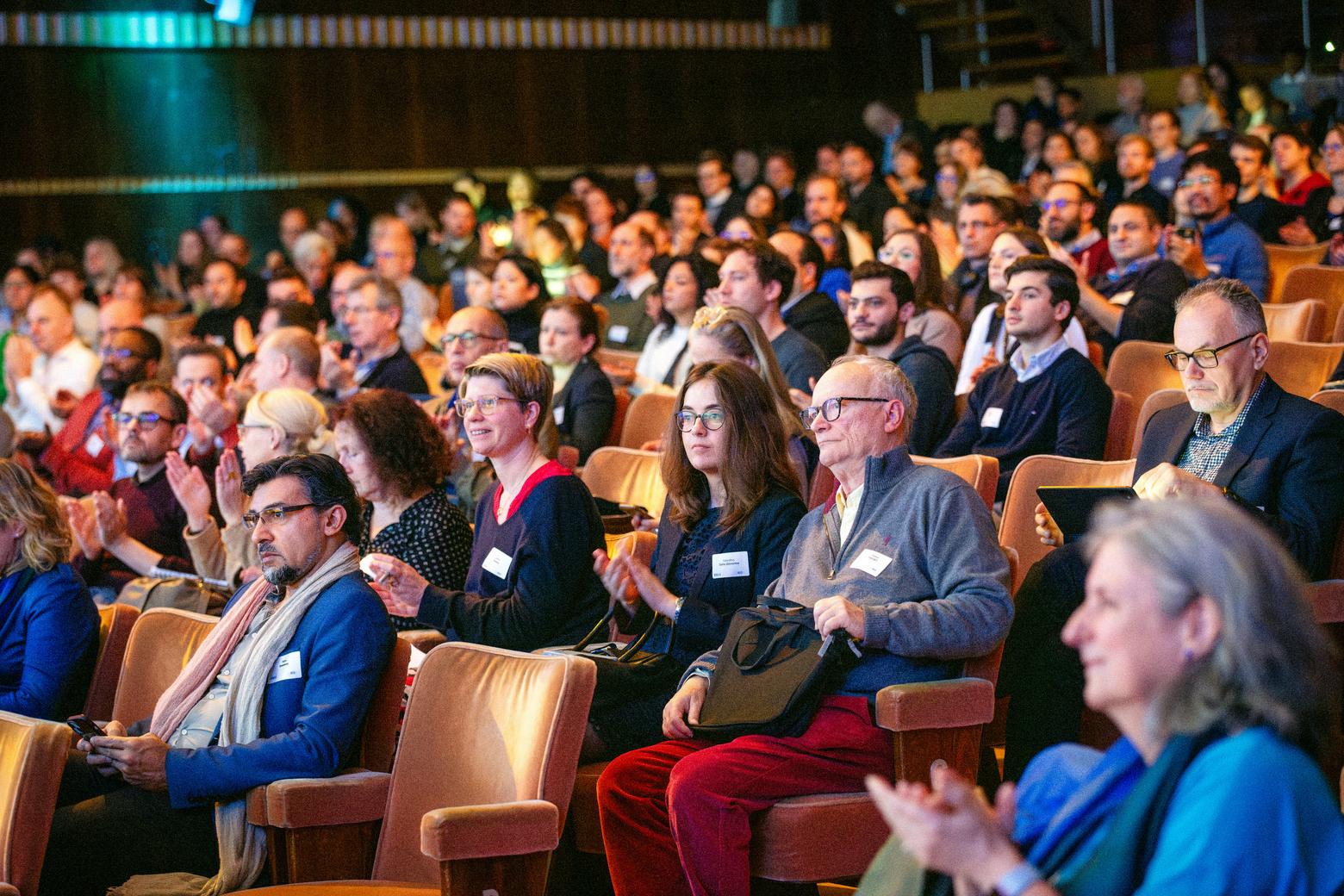SUMMARY FARI BRUSSELS CONFERENCE 2024 | AI, A PUBLIC GOOD?










SUMMARY FARI BRUSSELS CONFERENCE 2024 | AI, A PUBLIC GOOD?









On November 18-19, 2024, FARI – AI for the Common Good Institute (VUB-ULB) hosted the FARI Brussels Conference 2024 at Studio Flagey and BeCentral in Brussels Under the theme "AI, a Public Good?", the conference explored the role of AI, data, and robotics in shaping a sustainable and equitable future.
This document provides an overview of the conference, highlighting key figures and takeaways that aim to inspire reflection on the future of AI and its societal impact
Authors: Sezen Avci, FARI
Laura Jousset, FARI
Editor: Carl Mörch, FARI
Pictures; © Thierry Geneen
2 days of conferences filled with discussions and expert insights
Over 800 participants, with 600+ attendees on the first day only
42 speakers, including 48% women and 55% international
6 panels and 3 keynotes addressing the societal impact of AI
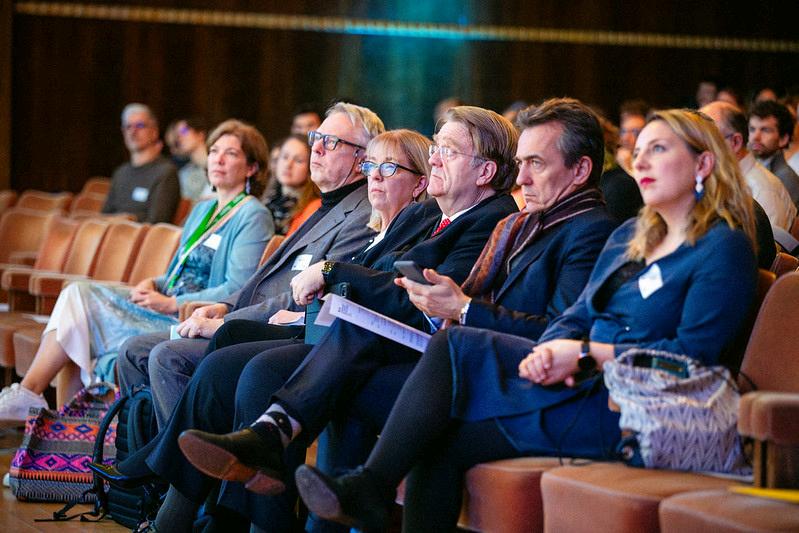
12 partner-led sessions connecting academia, industry, and the public sector
11 booths, 7 FARI demos and 5 artistic exhibits, enriching the experience
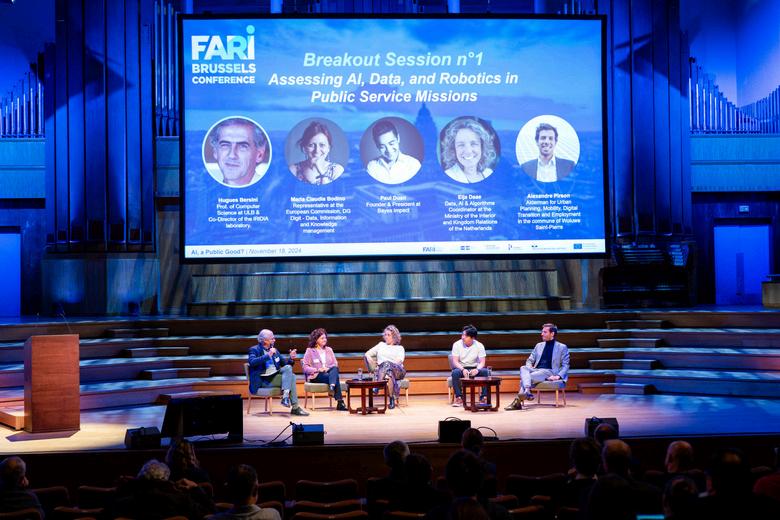
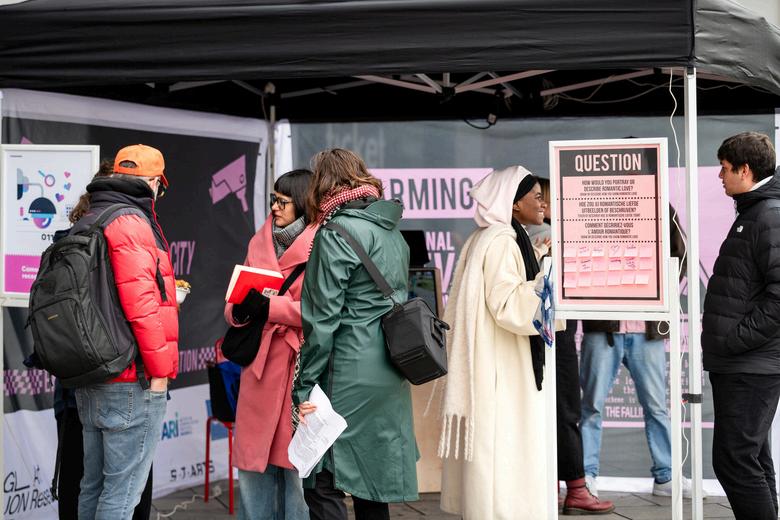
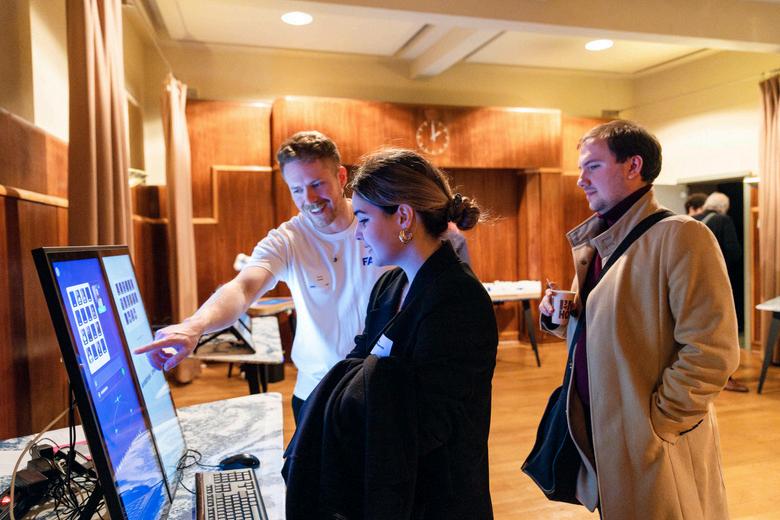
The conference opened on November 18th with addresses from academic leaders, EU representatives, and diplomats, emphasizing the importance of ethical AI, governance, and international collaboration.
Cécile Huet (European Commission) presented the AI Act and the EU’s commitment to human-centric AI.
Xavier Lapeyre de Cabanes (French Ambassador) and Martin Kotthaus (German Ambassador) reiterated the importance of international collaboration on AI governance.
Rectors Jan Danckaert (VUB) and Annemie Schaus (ULB) discussed AI accessibility, related university AI initiatives, and the important efforts to train their communities in AI
Mireille Hildebrandt (VUB) introduced how to interpret and understand the concepts of “public good”, questioning the technological race and advocating for AI that prioritizes public welfare over corporate interests.
Theresa Züger (AI & Society Lab) provided insights on the intersection of AI, democracy, and digital sovereignty, emphasizing the importance of citizen participation and transparent governance in AI policy
Yoshua Bengio (Mila & University of Montreal) warned of AGI risks, calling for more democratic oversight, hardware-enabled safety measures, and international cooperation to prevent an AI arms race.
Watch their keynote speeches on the FARI YouTube channel
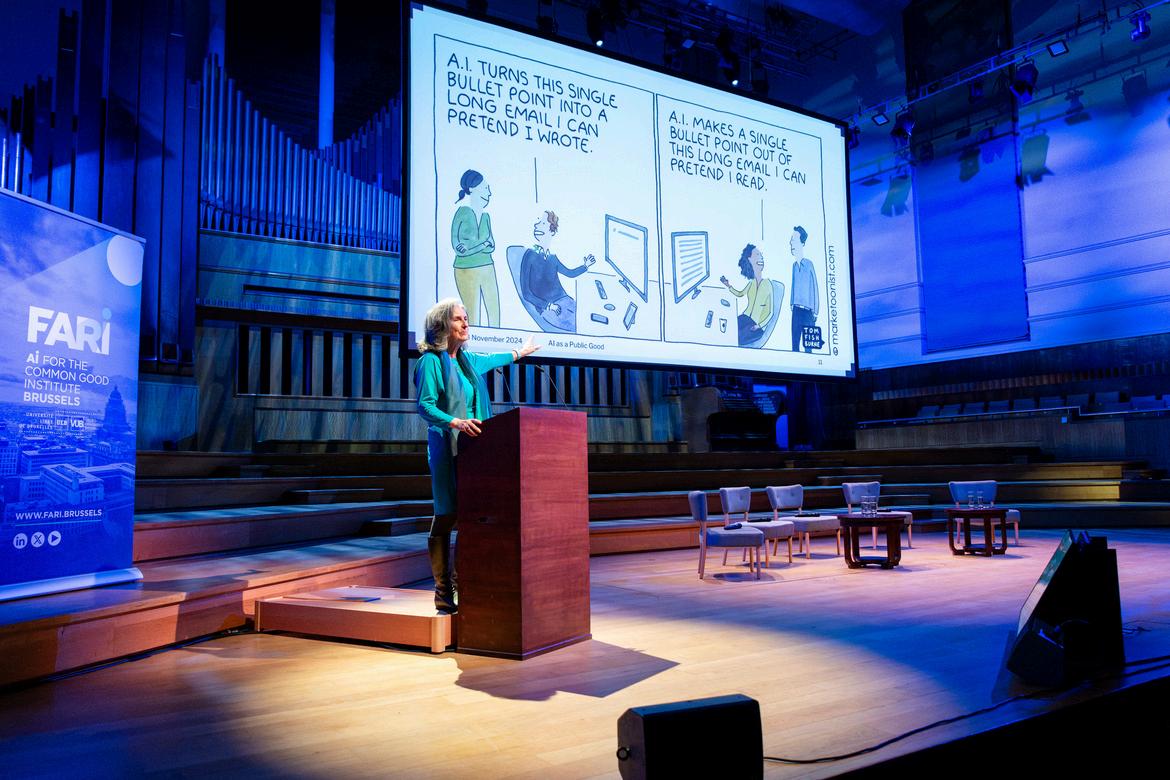
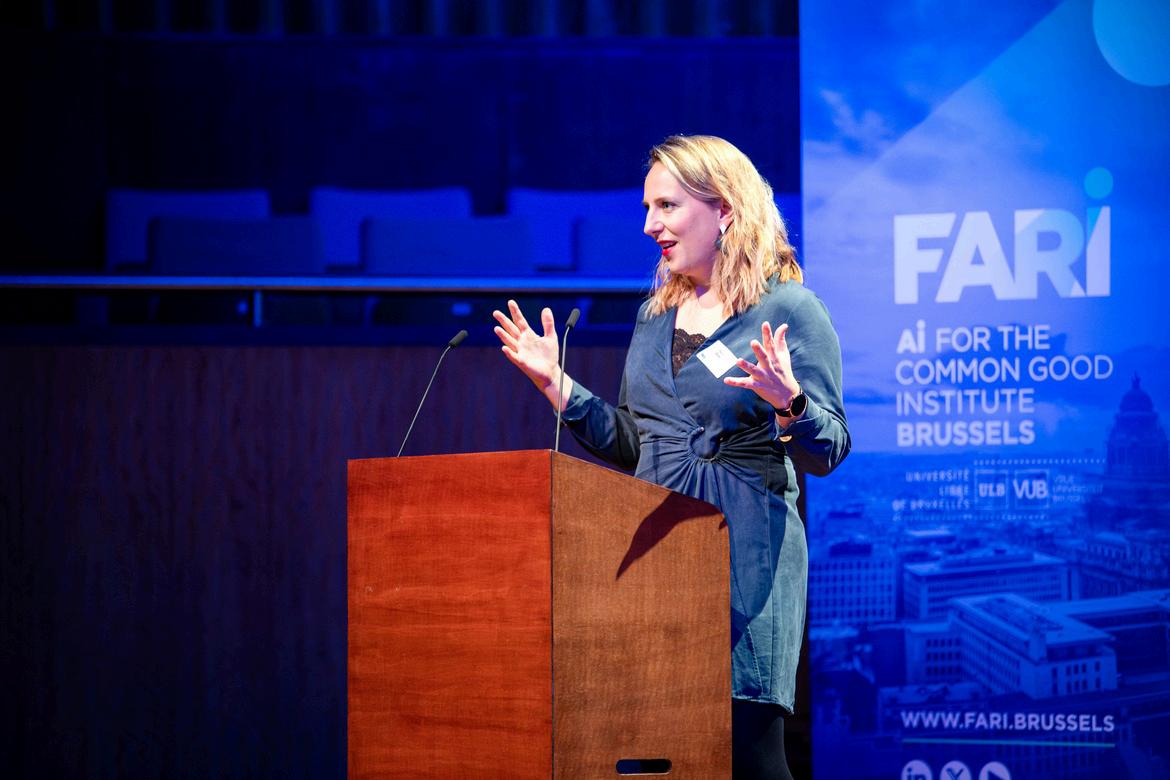
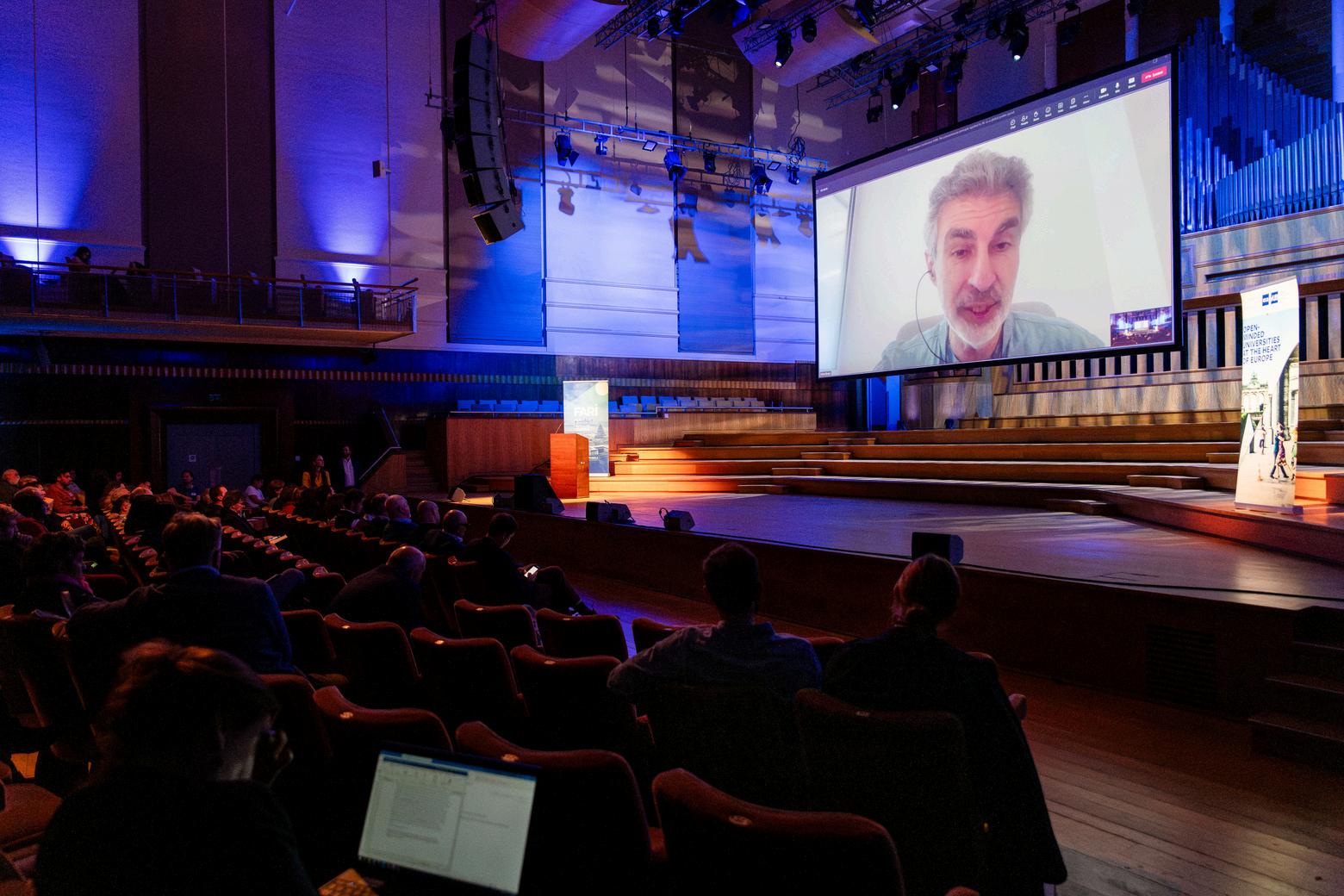
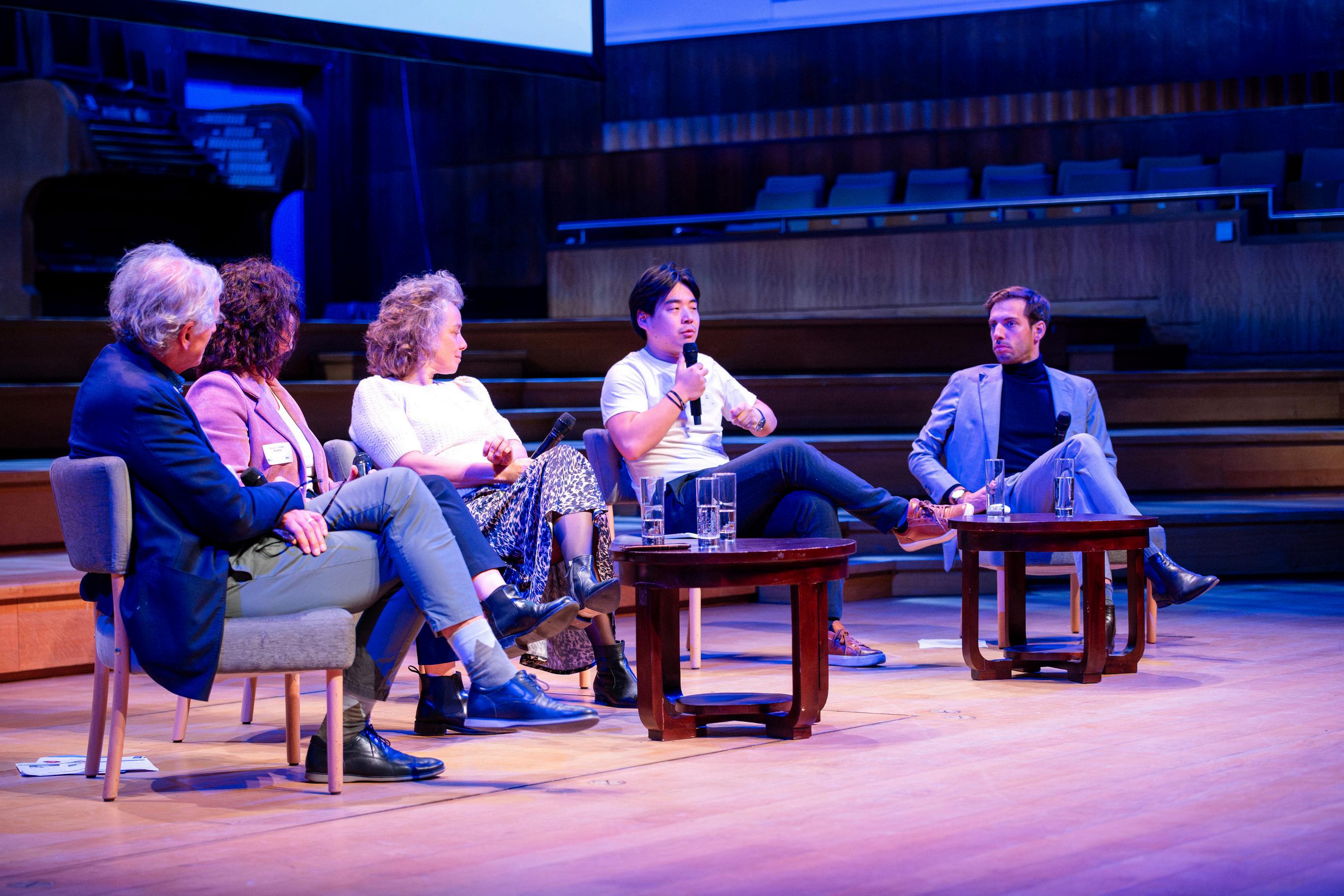
The session focused on the ethical use of AI and big data in public services, underlining the need for transparency, accountability, and public trust. Speakers highlighted the importance of ethical frameworks, public awareness, and innovation tools, demonstrating how AI can address societal challenges. Examples such as CaseAI and EU data management initiatives illustrated AI’s role in improving public service delivery responsibly. Experts emphasized collaboration and responsible governance as essential for ensuring technology benefits all citizens
This session explored how AI, robotics, and data-sharing can drive societal change, focusing on urban mobility, climate action, and public service improvements Speakers discussed optimizing traffic management, promoting climate action through data-sharing, and enhancing public services using AI tools like chatbots They emphasized the crucial role of public-private collaboration in maximizing the potential benefits of these technologies while addressing possible risks, including public acceptance and ethical concerns
The session emphasized the importance of making AI, data, and robotics research accessible to all, with a focus on collaboration, equitable access, and ethical considerations Speakers discussed the challenges in infrastructure, data management, and the need for regulations to ensure AI fosters positive change across diverse fields. Key insights included sharing knowledge, resources, and expertises, balancing openness with data sensitivity, and ensuring safety through AI regulation.
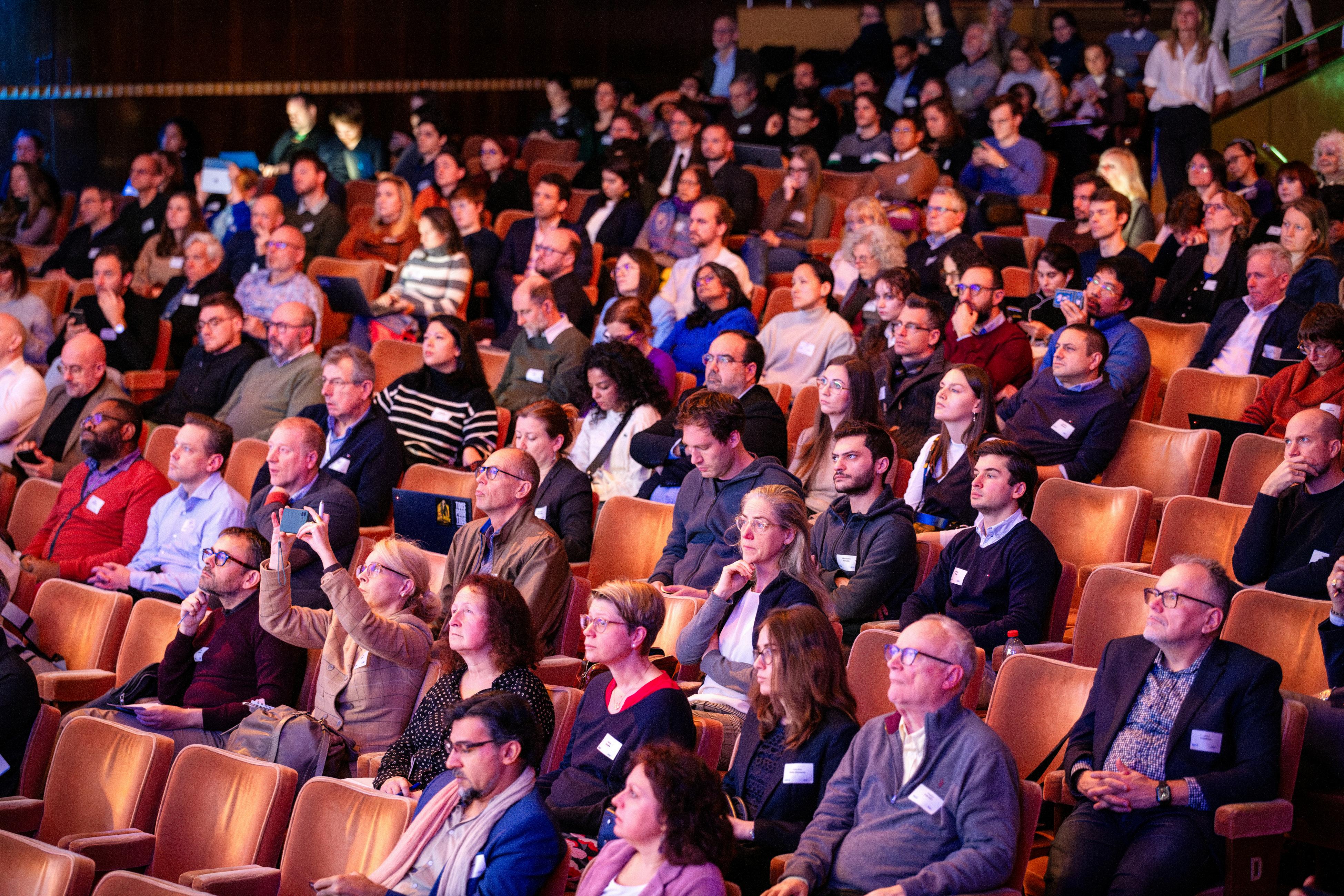
The session explored AI’s role in shaping Europe’s future, highlighting the EU’s efforts to balance innovation with long-term sustainability. Experts reviewed the EU AI strategy, the AI Act, and other regulatory frameworks, comparing them with global approaches. The discussion emphasized the need for a strong European technological infrastructure to ensure competitiveness while maintaining ethical, trustworthy, and human-centered AI development
This session focused on the importance of collaboration among citizens, businesses, governments, and researchers to ensure the ethical and inclusive development of AI. Speakers highlighted the risks of power imbalances, biases, and technological determinism, advocating for public participation in AI governance. Successful models like Tampere’s responsible AI frame-work and Montreal’s AI Declaration were presented as examples of community-driven AI approaches that foster trust and equity
The session explored the transformative impact of AI, data, and robotics on culture and creativity. It covered the philosophical dimensions of AI in art, immersive augmented reality storytelling, and generative AI's role in personalizing cultural experiences. Speakers showcased how these technologies can expand artistic possibilities for creators and enhance accessibility and engagement in cultural institutions for audiences Emphasis was placed on balancing innovation with preserving human creativity, ensuring technology complements rather than replaces human imagination
On November 19th, the FARI Brussels Conference was followed by an exciting series of partner-organized events exploring the theme "AI, a Public Good?" The day brought together a wide range of stakeholders, including European institutions, private companies, public administrations, Belgian and international organizations, and research associations, to deepen discussions on AI’s role in society.
OASC examined how Local Digital Twins (LDTs) can support the adops
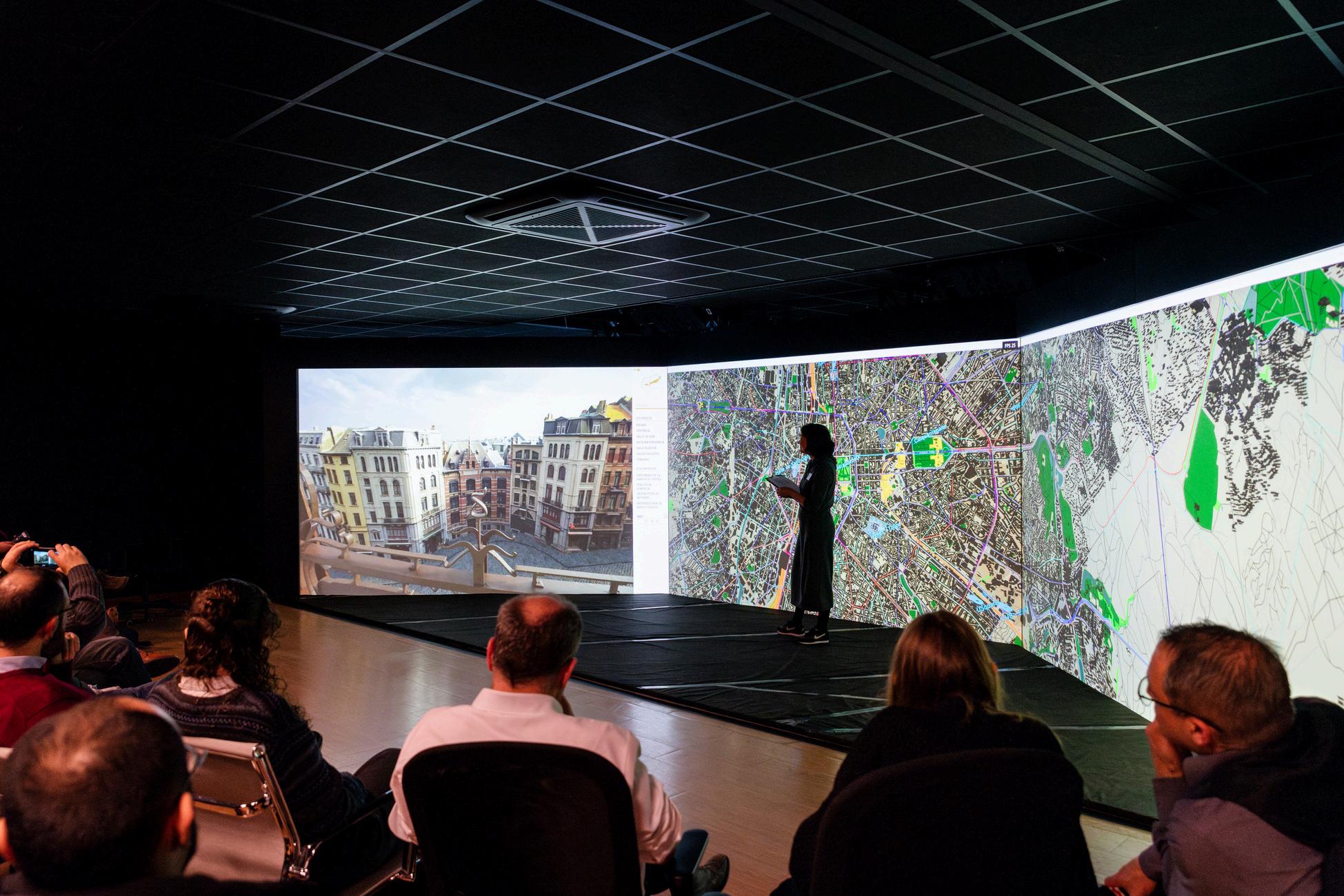
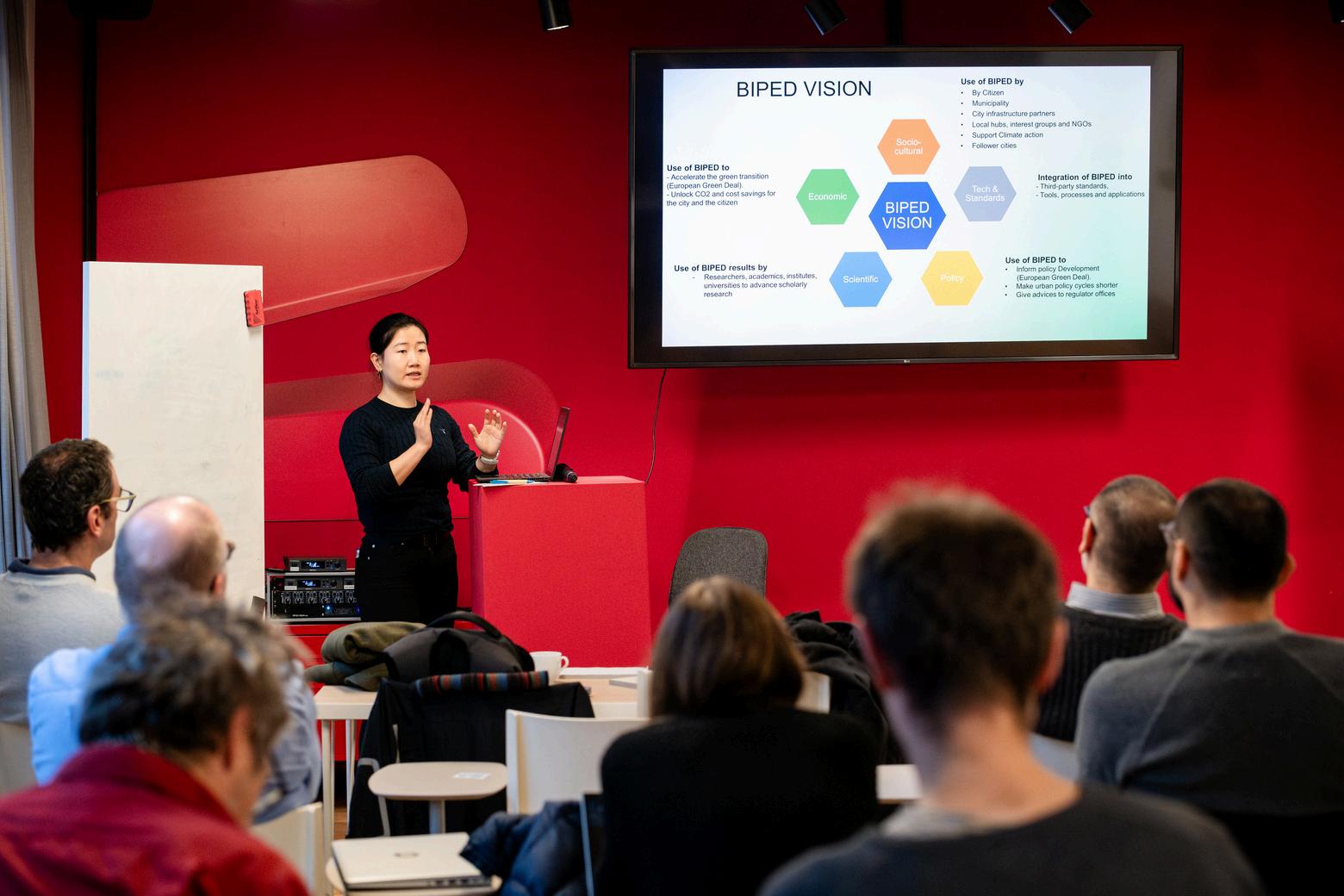
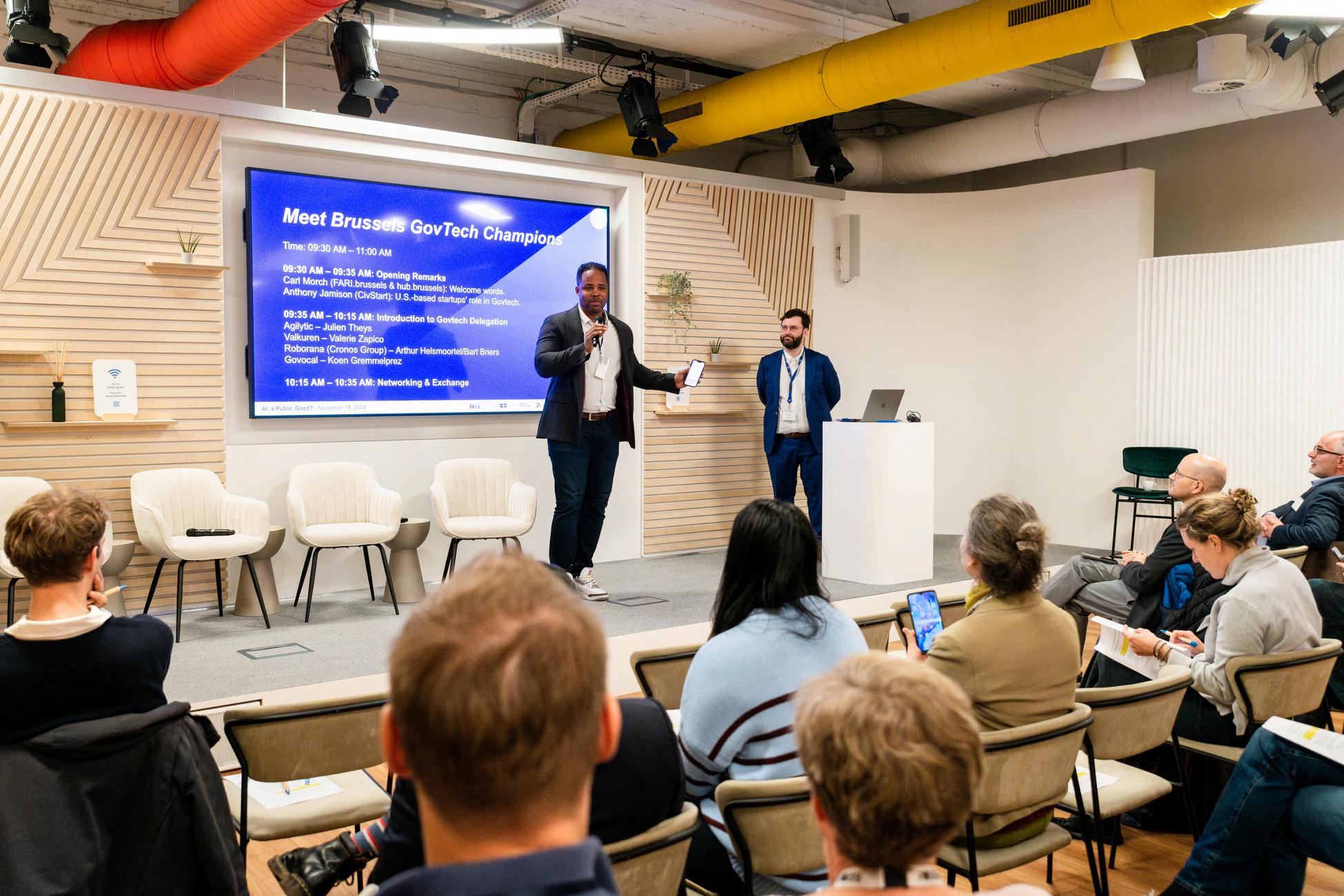
This FARI session highlighted global efforts to engage citizens in urban planning through 3D digital models, addressing challenges such as air quality and mobility It showcased collaborations between cities, NGOs, and local communities.
Co-organized with hub brussels, this session featuring innovative Belgian and US companies explored how technology can meet the needs of local governments and foster publicprivate-academic partnerships
Gluon brought together experts in neuroscience, art and philosophy for a symposium at WIELS museum to explore the links between AI, creativity and human expression.
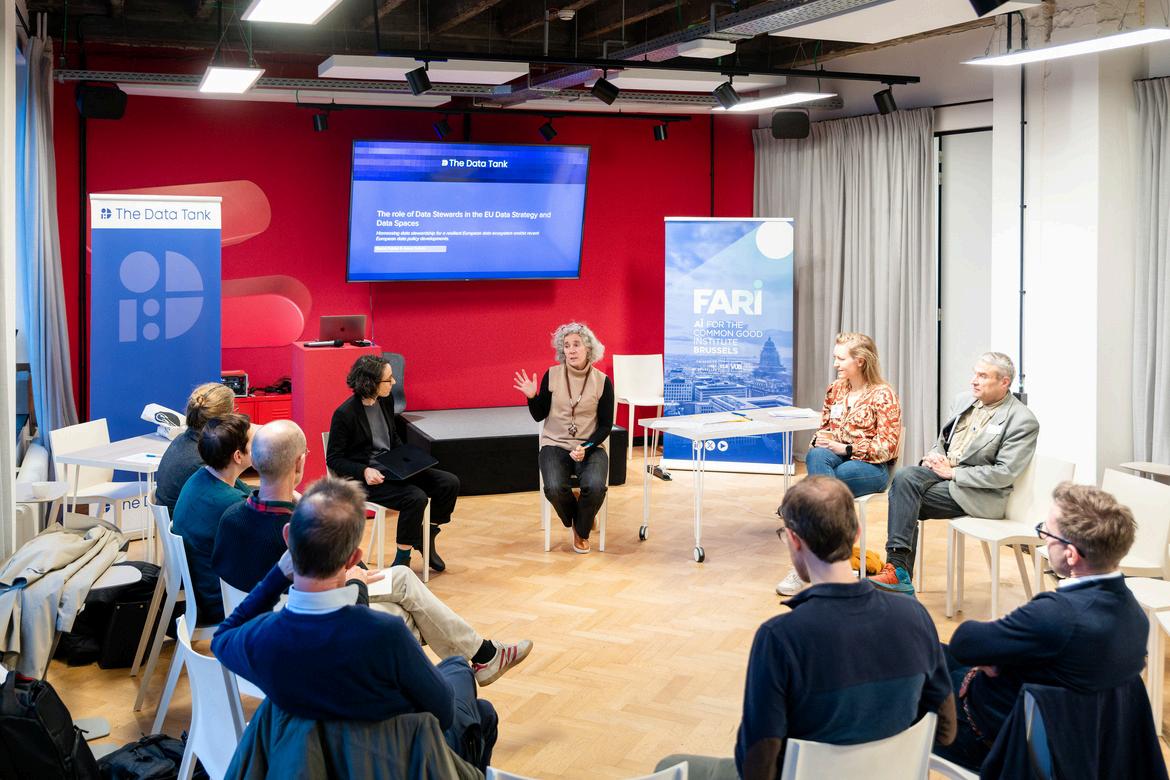
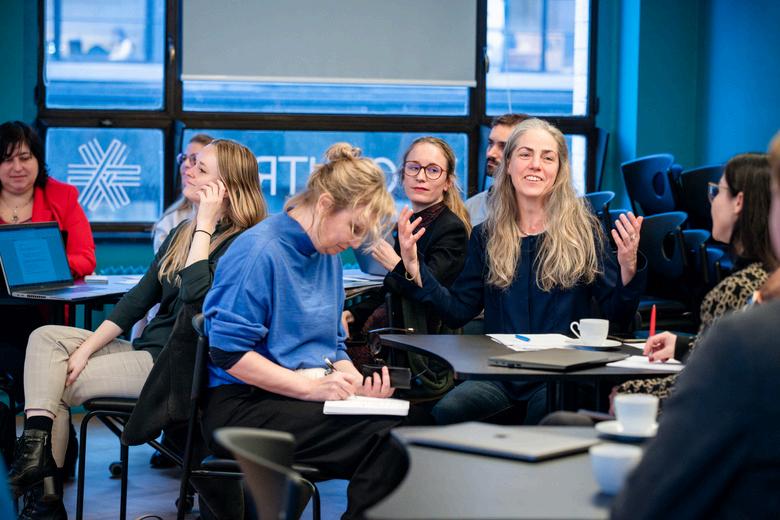
SIPRI and UNODA brought together professors and researchers to discuss integrating responsible innovation into AI curricula The round-table focused on building a global network to foster responsible AI practices.
Powered by European Commission Big Data Test Infrastructure (BDTI), this workshop explored how data reuse can improve public policies and services, offering open-source tools to support data experimentation for more efficient governance
The event, held in collaboration with VUB BUDA, showcased innovation from the FARI AI Accelerator’s second cohort with the graduation pitch by Johan van Mol of No-Kno on inclusivity in business communications.
The roundtable hosted by Make.org and ifok explored AI’s role in supporting democratic processes and citizen engagement, discussing initiatives like Make.org’s Democratic Commons and ifok GmbH’s Civic Coding program
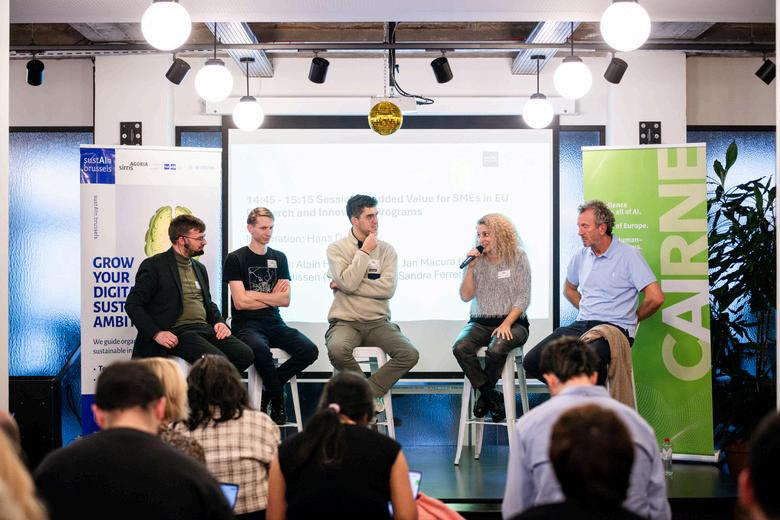
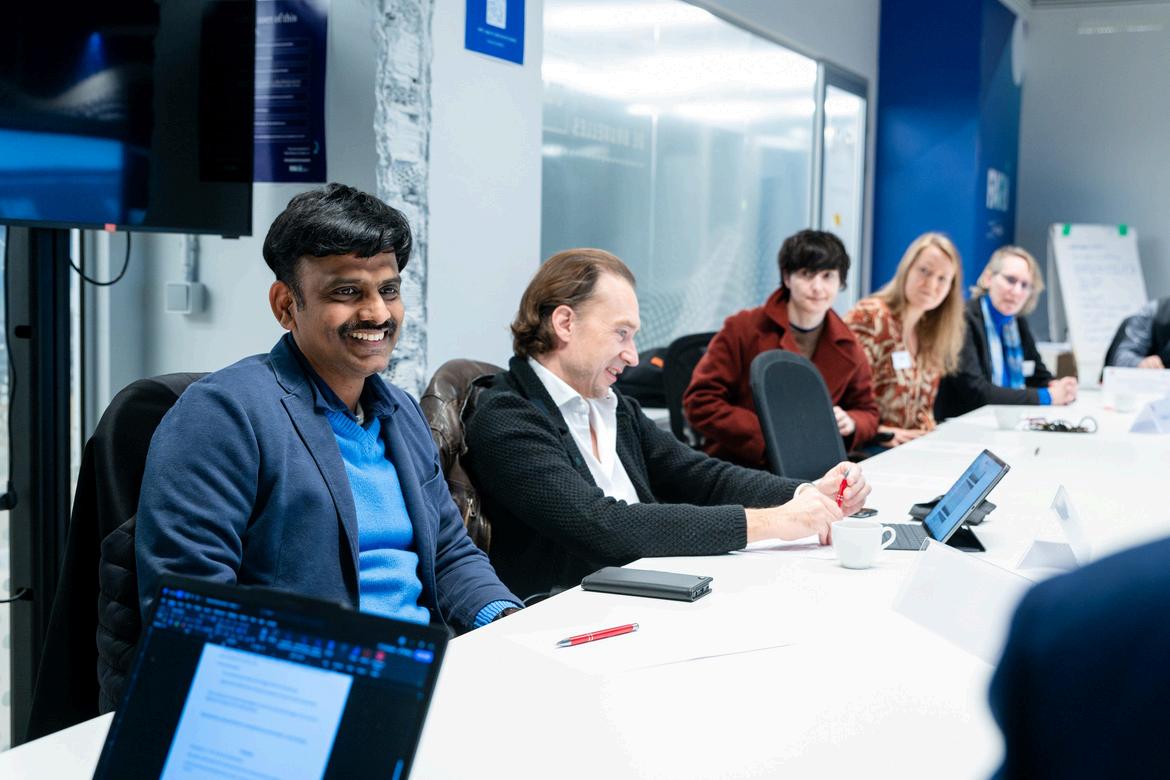
This AI Sandbox Summit organized by CAIRNE explored the challenges and best practices for testing AI technologies within regulatory frameworks, aiming to enhance innovation ecosystems across Europe
SustAin.Brussels and CAIRNE joined forces to connected SMEs, academic institutions, and funding agencies, and discuss sustainable AI in EU proposals and innovation opportunities in European programs
This Data Tank session focused on implementing the EU's Data Strategy and Data Spaces, with an emphasis on data stewardship, governance, and sustainability to foster innovation in data practices.
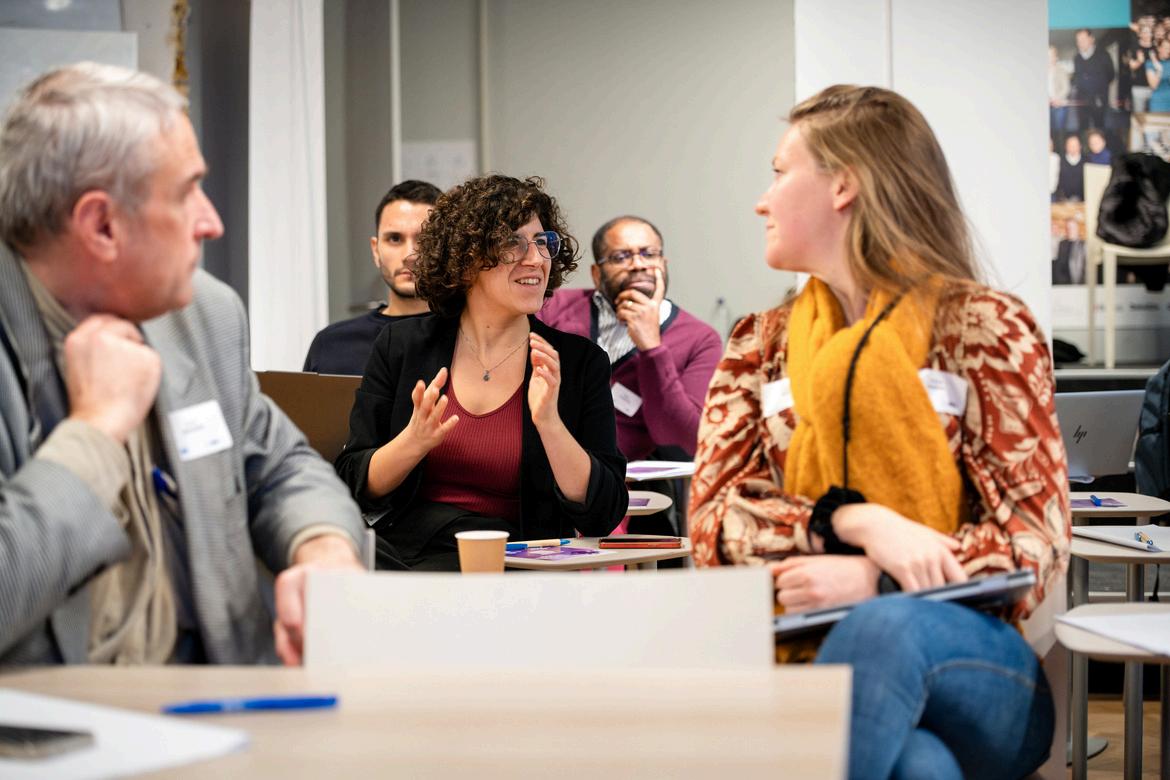
The discussions emphasized AI's role as a public good, driving innovation while ensuring equitable benefits. Ethical governance and policies are essential to address AI's impacts on jobs, privacy, and social equality Accountability and regulation are necessary to harness AI responsibly, prioritizing collective well-being and preventting its misuse in perpetuating inequality or surveillance.
The future of AI demands urgently the development of ethical systems prioritizing fairness, sustainability, and the common good. While AI's transformative potential is vast, its design must focus on long-term societal benefits, not just economic gains. AI should be viewed as a powerful tool that shapes the future in alignment with shared human values
In Europe, AI is increasingly seen as a tool to advance public policy, sustainability, and social welfare, guided by values of transparency, privacy, and accountability The European Commission focuses on human-centric AI, balancing innovation with ethical principles to ensure safety, fairness, and human rights protection These efforts aim to achieve independence from global powers and foster a sovereign AI ecosystem rooted in ethical leadership.
AI must respect human dignity, rights, autonomy, and privacy While offering significant potential for societal development, AI must be carefully managed to avoid exacerbating inequalities. Strong ethical oversight is necessary to ensure AI serves humanity's best interests as a public good.
AI is transforming the arts by enhancing accessibility and expanding creative possibilities through generative AI and au-gmented reality. While it offers new ways to engage with art, human creativity must remain cen-tral, ensuring AI complements rather than replaces human imagination Ethical concerns regarding AI’s influence on identity, values, and traditional media are crucial
AI holds potential to support urban development through Local Digital Twins (LDTs) and citizen engagement. LDTs help address urban energy challenges and drive sustainable transitions i.e., cities like Tokyo and Copenhagen are leveraging LDTs to tackle air quality and mobility issues Collaboration between cities, NGOs, and communities is key to creating more sustainable urban environments
How could policies and regulatory frameworks better ensure that AI serves the common good without exacerbating inequalities or compromising privacy?
How do we balance technological advancement with ethical considerations like fairness, dignity, and accountability?
How can AI innovations accelerate sustainability in cities, and what challenges exist in diverse urban contexts?
Can AI replicate human creativity, or will it remain a tool for human expression? How should we redefine the boundaries between human and machine-made art?
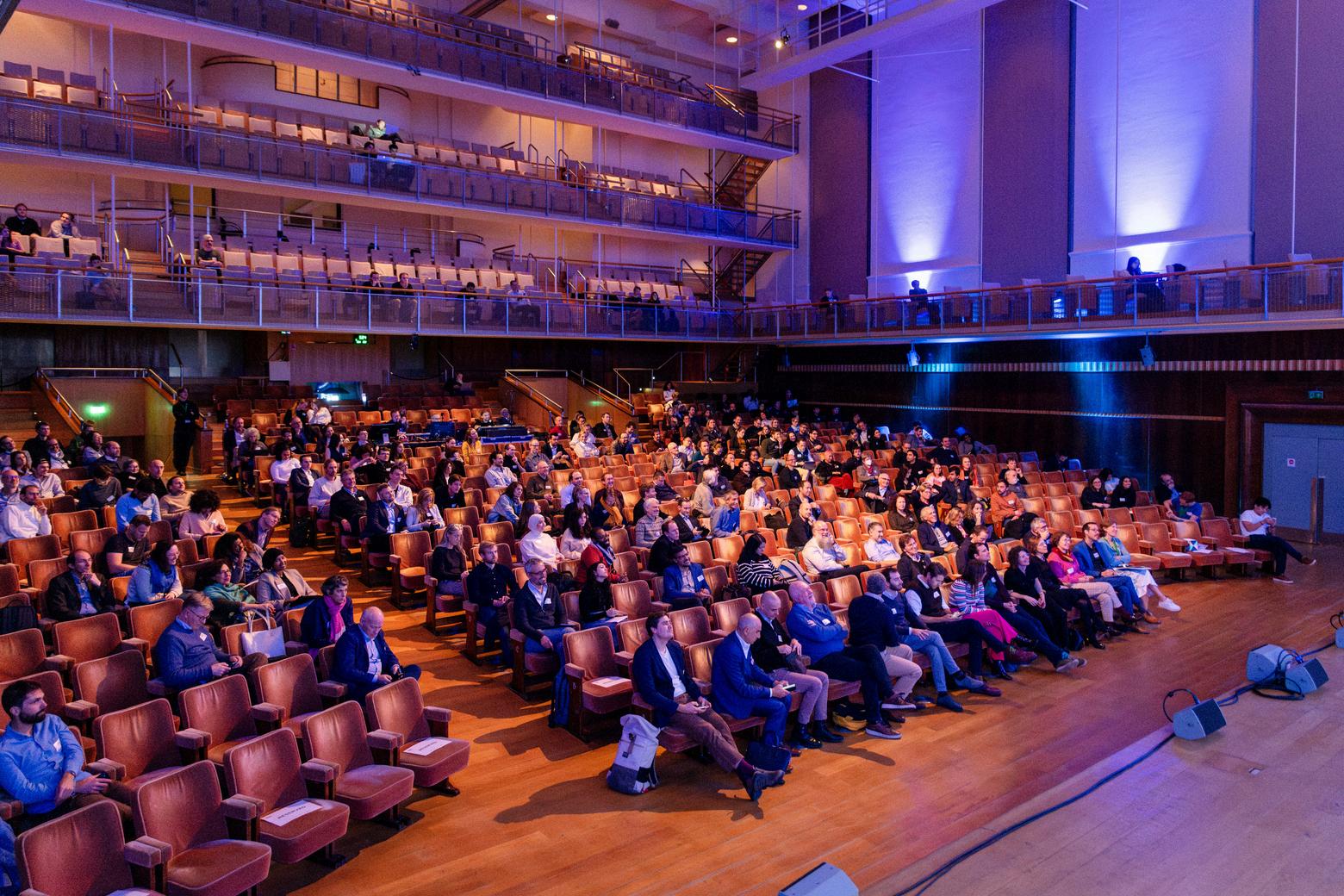
At the heart of the FARI Brussels Conference 2024, this question prompted rich discussions across various sectors, emphasizing the need for continued interdisciplinary dialogue. The conference exemplified the importance of collaboration between artists, technologists, scientists, policymakers, and civil society to ensure technology enhances societal well-being. The 2024 event concluded with an immediate call to action for an inclusive and sustainable AI-driven future.
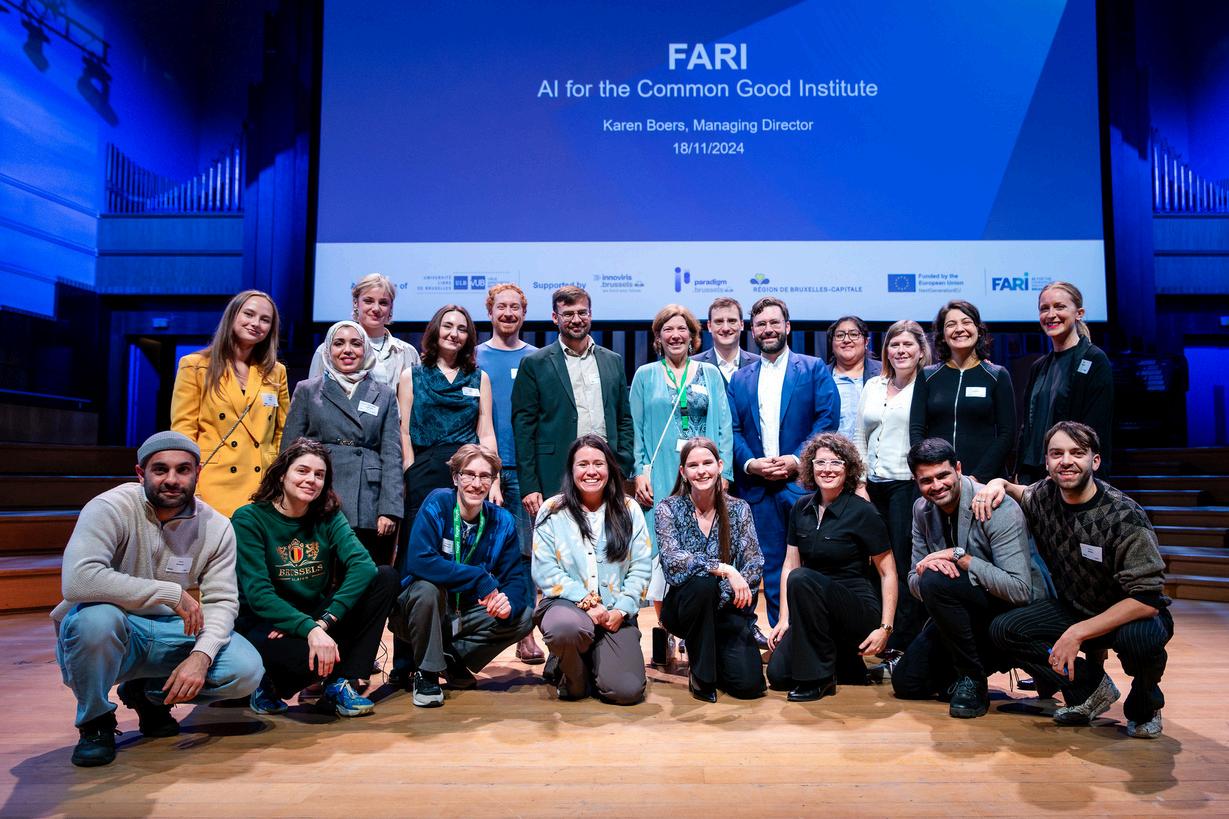
The FARI Brussel Conference 2024 has been honored with an award by visit.brussels: Brussels Business Events Ambassadors 2025

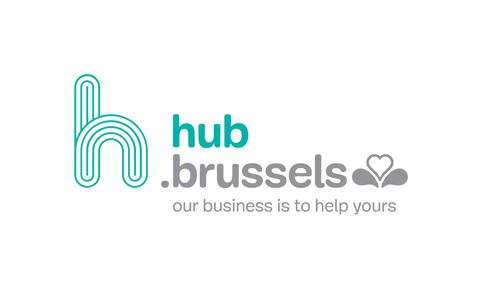


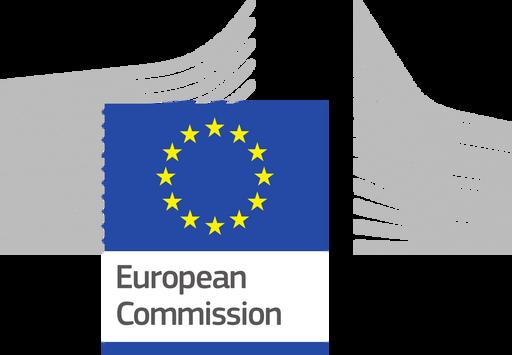









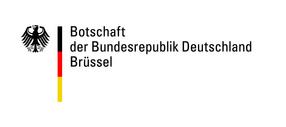















Thank you to our #FARI2024 sponsors and partners


